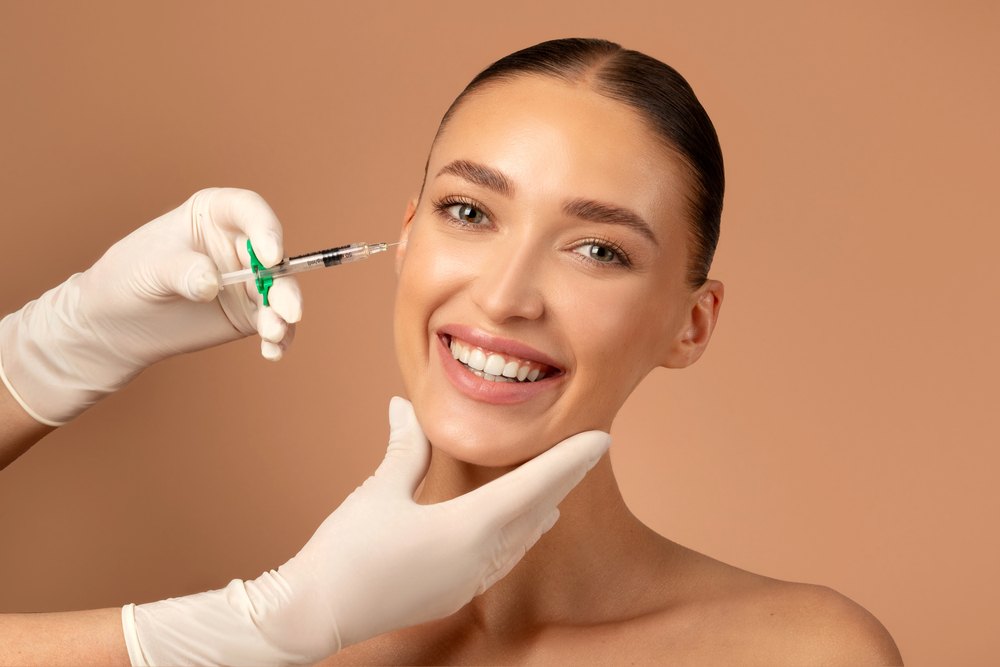
9 Frequently Asked Questions About Dermal Fillers
Dermal fillers have become an increasingly popular treatment for those looking to restore volume, enhance facial contours, and achieve a refreshed appearance. However, if you’re considering dermal fillers, you likely have a few questions. We’ve compiled the most frequently asked questions to help you make an informed decision.
Q1. How Do Dermal Fillers Work?
When injected, dermal fillers add volume beneath the skin’s surface, smoothing out wrinkles and restoring a plumper appearance. Hyaluronic acid-based fillers also attract water molecules, further enhancing hydration. The results can be seen immediately, with continued improvement over the following weeks.
Q2. How Long Do Dermal Fillers Last?
The longevity of dermal fillers depends on the type used, the treatment area, and individual metabolism. In general:
- Lip fillers may last around 6 to 12 months.
- Cheek, chin and jawline fillers may last 12 to 18 months.
- Tear trough (under-eye) and temple fillers may last 9 to 12 months.
Q3. Are Dermal Fillers Safe?
When administered by a qualified healthcare professional, dermal fillers are considered safe. However, as with any medical procedure, there are potential risks, including swelling, bruising, and, in rare cases, complications such as vascular occlusion. It is essential to have a consultation with a trained injector to assess suitability and discuss any potential risks.
For more information on consultations, check out our blog on Everything You Need to Know Before Getting Lip Filler Done.
Q4. Do Dermal Fillers Hurt?
Most patients experience minimal discomfort during the procedure. Many fillers contain a local anaesthetic (lidocaine) to help reduce pain, and numbing cream may be applied before the treatment. Some areas, such as the lips, may be more sensitive than others, but the procedure is generally well tolerated.
Q5. What Is the Downtime After Dermal Fillers?
There is minimal downtime associated with dermal fillers, and most patients can resume normal activities immediately. However, minor swelling and bruising may occur, usually resolving within a few days. It is recommended to avoid intense exercise, alcohol, and excessive sun exposure for at least 24-48 hours post-treatment.
Q6. Can I Dissolve Dermal Fillers If I Don’t Like the Results?
Hyaluronic acid-based fillers can be dissolved using an enzyme called hyaluronidase, which is administered by a healthcare professional. If you are unhappy with your results or experience complications, your injector can discuss options for adjustment or reversal.
Q7. Who Is a Good Candidate for Dermal Fillers?
Dermal fillers may be suitable for individuals looking to enhance facial contours, restore lost volume, or smooth fine lines. Ideal candidates should:
- Be over 18 years old
- Be in good general health
- Not be pregnant or breastfeeding
- Not have active skin infections in the treatment area
- Have realistic expectations
Q8. What’s the Difference Between Dermal Fillers and Anti-Wrinkle Injections?
Dermal fillers and anti-wrinkle injections work differently:
Purpose:
- Dermal Fillers: Add volume, contour facial features, and smooth out deep lines. Commonly used for lips, cheeks, jawline, and under-eye areas.
- Anti-Wrinkle Injections: Relax facial muscles to reduce the appearance of fine lines and dynamic wrinkles caused by facial expressions, like crow’s feet, frown lines, and forehead lines.
Results:
- Dermal Fillers: Provide immediate results with added volume. Effects last from 6 to 18 months, depending on the type and area treated.
- Anti-Wrinkle Injections: Results start to appear within 3-5 days, with full effects in about 2 weeks. The effects last around 3-4 months.
Q9. How Do I Choose the Right Injector for My Treatment?
Choosing a qualified and experienced healthcare professional is crucial for achieving safe and natural-looking results. Look for a practitioner who:
- Is registered with the Australian Health Practitioner Regulation Agency (AHPRA).
- Has experience in dermal filler treatments
Provides a thorough consultation before treatment. - Complies with all Therapeutic Goods Administration (TGA) regulations regarding cosmetic injectables.
Final Thoughts
Dermal fillers may help enhance your features and restore volume loss. However, it is essential to do your research and choose a reputable healthcare provider for your treatment.
Important Notice: Please be advised that a comprehensive consultation is essential before making any decisions regarding cosmetic injectable procedures. Our professional team is dedicated in prioritising your safety and achieving results tailored to your unique needs. Schedule your consultation today for personalised guidance.





